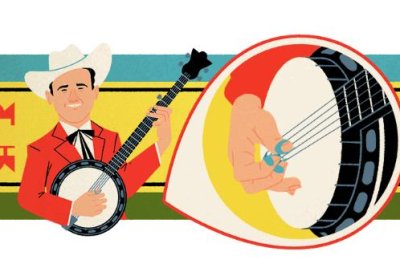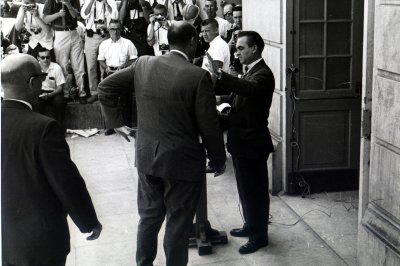Topic: Bill Monroe
William Smith Monroe (September 13, 1911 – September 9, 1996) was an American musician who created the style of music known as bluegrass, which takes its name from his band, the "Blue Grass Boys," named for Monroe's home state of Kentucky. Monroe's performing career spanned 60 years as a singer, instrumentalist, composer and bandleader. He is often referred to as The Father of Bluegrass.
Monroe was born on his family's farm near Rosine, Kentucky, the youngest of eight children of James Buchanan "Buck" and Malissa (Vandiver) Monroe. His mother and her brother, Pendleton "Pen" Vandiver, were both musically talented, and Monroe and his family grew up playing and singing at home. Because his older brothers Birch and Charlie already played the fiddle and guitar, Bill Monroe was resigned to playing the less desirable mandolin. He recalled that his brothers insisted he remove four of the mandolin's eight strings so he would not play too loudly.
Monroe's mother died when he was ten, followed by his father six years later. As his brothers and sisters had moved away, after bouncing among uncles and aunts, Monroe settled in with his now disabled uncle Pendleton Vandiver, often accompanying him when Vandiver played the fiddle at dances. This experience inspired one of Monroe's most famous compositions, "Uncle Pen," recorded in 1950 and released on the 1972 album, "Bill Monroe's Uncle Pen." On that album, Monroe recorded a number of traditional fiddle tunes he had often heard performed by Vandiver. Uncle Pen has been credited with giving Monroe "a repertoire of tunes that sank into Bill's aurally trained memory and a sense of rhythm that seeped into his bones." Also significant in Monroe's musical life was Arnold Shultz, an influential fiddler and guitarist who introduced Monroe to the blues.
It uses material from the Wikipedia article "Bill Monroe."






